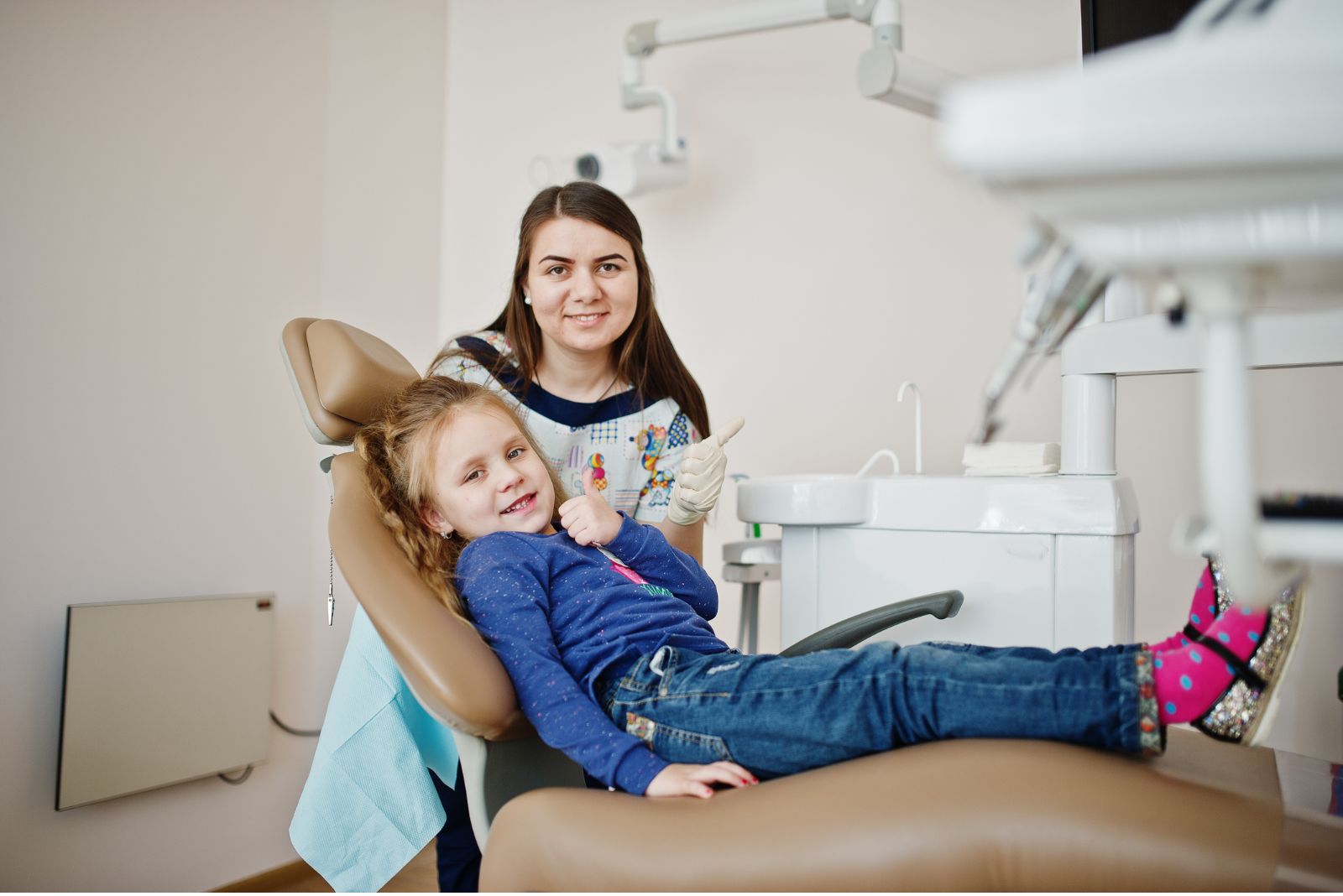Tooth decay is one of the most common chronic health conditions in children, and the good news is, it’s almost always preventable. Many parents assume that cavities in baby teeth aren’t a big deal, but untreated decay can cause pain, infections, speech difficulties, and even affect the health of permanent teeth.
Early oral care isn’t just about brushing it’s about building consistent habits, making smart food choices, and getting professional dental guidance when needed.
In Methuen, more families are recognising how early oral health routines can shape a child’s overall well being for years to come. By following proven tips and partnering with a trusted dental team, you can help your child avoid the discomfort and long term effects of cavities.
Let’s explore practical, effective ways to keep your child’s smile healthy and cavity free right from the start.
Start Early with the Right Habits
Cleaning Baby Teeth Matters
Oral care should begin before the first tooth appears. Use a clean, damp cloth to gently wipe your baby’s gums after feedings. This removes bacteria and helps your child become comfortable with oral hygiene early on.
When the first tooth arrives, usually around six months, switch to a baby toothbrush and use a smear of fluoride toothpaste, about the size of a grain of rice.
Starting these habits early helps your child feel comfortable with oral care routines and lays the foundation for a lifetime of healthy teeth.
Make Brushing and Flossing Fun
Convincing young children to brush and floss can sometimes feel like a daily challenge. Turning it into a fun activity makes all the difference. Try singing songs, using a two minute music timer, or letting your child choose their own toothbrush and toothpaste.
Flossing should start as soon as two teeth touch. Baby teeth are often close together, which makes it easy for food particles and bacteria to get trapped. Early flossing prevents cavities between teeth, areas that brushing alone can miss.
Watch What They Eat and Drink
Limit Sugary Snacks and Drinks
Children naturally enjoy sweet treats, but sugar is the leading cause of cavities. When sugar combines with mouth bacteria, it creates acid that attacks tooth enamel.
Sticky snacks, like gummies, fruit roll ups, or caramel, are especially harmful because they cling to teeth and feed bacteria long after snack time.
Sugary drinks, including juice, flavoured milk, and soda, are also major culprits. Sipping on them slowly, especially through a straw or sippy cup, prolongs acid exposure. Offer these drinks only with meals and never at bedtime.
Healthy Choices Make a Difference
Choose tooth friendly snacks like cheese, fresh vegetables, apples, and unsweetened yogurt. Cheese helps neutralise acid, while crunchy fruits and vegetables naturally clean teeth.
Encourage drinking water throughout the day. Water rinses away food particles and sugar, and if your local supply contains fluoride, it adds extra protection.
If you’re unsure how to create a healthier diet plan for your child, your dentist can provide a guide for oral care tailored specifically to their needs.
Understand the Role of Fluoride
Fluoride is a natural mineral that strengthens tooth enamel, making it more resistant to decay. Using fluoride toothpaste is one of the simplest and most effective ways to prevent cavities.
For children under three, use a smear no larger than a grain of rice. For those aged three and above, a pea sized amount is ideal. Continue helping them brush until they can do it thoroughly, usually around age seven or eight.
In Methuen, some households benefit from fluoridated water, which offers added protection. If your water isn’t fluoridated or your child has a higher risk of cavities, your dentist may recommend fluoride supplements or professional treatments.
Ask your dentist if your child could benefit from extra fluoride protection, especially during the crucial early years of tooth development.
Schedule Regular Dental Visits
The First Visit by Age One
Many parents don’t realise that the first dental visit should be scheduled by age one or within six months of the first tooth erupting.
Early visits help your child become familiar with the dental environment, making future appointments easier. Your dentist will check for decay, discuss feeding and pacifier habits, and guide you on proper oral care at home.
Consistent Checkups Are Key
After the first visit, schedule checkups every six months. These visits allow your dentist to clean your child’s teeth, apply fluoride if needed, and monitor for early signs of problems.
If your child struggles with brushing, flossing, or diet, a visit to a pediatric dentist in Methuen can provide the guidance and encouragement you need.
Ask About Sealants and Preventive Treatments
Even with great brushing, the deep grooves in back molars are tough to keep clean. Dental sealants, thin, protective coatings applied to these grooves act as a barrier against food and bacteria.
Sealants are especially helpful for children aged 6–12, when permanent molars emerge. The process is quick, painless, and can last for years. Many dental practices, including Happy Hoppers Dental Methuen, offer sealants as part of their preventive care.
Fluoride varnishes and other treatments may also be recommended based on your child’s risk level.
Know the Signs of Trouble Early
Cavities don’t always cause pain right away. Look out for warning signs such as:
- Sensitivity or discomfort when eating hot, cold, or sweet foods
- White or brown spots on teeth
- Persistent bad breath
- Red or swollen gums
- Avoiding certain foods due to discomfort
If you notice any of these signs, don’t wait until the next checkup, contact your child’s dentist promptly. Early treatment is simpler, more affordable, and more effective.
Build a Positive Dental Routine at Home

Be a Role Model
Children often mimic what they see. If they watch you brush and floss daily, they’re more likely to follow suit. Let them “help” you brush, explain each step, and make it a family activity rather than a chore.
Keep your tone upbeat and encouraging, even when correcting mistakes. Avoid using the dentist as a threat, it can create unnecessary fear.
Keep a Morning and Night Routine
Want to make brushing a habit your child enjoys? Add a printed kids oral care guide to your bathroom. This colourful, easy to follow chart turns brushing, flossing, and rinsing into a fun, confidence building activity.
Parents appreciate how it keeps kids accountable, while children enjoy the independence it fosters. Whether your child is starting fresh or needs extra encouragement, this guide is an excellent tool to support your goal of a cavity free smile.
Don’t Forget About Sports and Nighttime Habits
Active children should wear a properly fitted mouthguard during sports. While store bought options are available, custom mouthguards from your dentist offer better comfort and protection.
If your child grinds their teeth at night (bruxism), a nightguard may be necessary to prevent enamel wear. Grinding can also be a sign of stress, so discuss both dental and emotional factors with your dentist.
Your Dental Team is Your Partner
Cavity prevention is a team effort. The right dental team offers guidance, support, and treatments tailored to your child’s needs.
Scheduling a regular dental visit ensures your child’s oral health is monitored and maintained at every stage. Choose a dentist who is gentle, patient, and experienced in working with kids.
At Happy Hoppers Dental Methuen, we’re dedicated to helping Methuen families develop strong dental habits. From baby teeth to braces, our friendly team provides checkups, preventive treatments, and a comfortable environment children enjoy visiting.
Conclusion
You don’t need to be perfect to protect your child’s smile. By starting early, using fluoride, making healthy food choices, and keeping dental visits consistent, you can significantly reduce the risk of cavities.
Families in Methuen are increasingly proactive about dental care, and it shows in their children’s healthy, confident smiles. Whether you’re beginning your child’s oral care journey or improving existing routines, partnering with a pediatric dentist in Methuen is one of the best decisions you can make.
Sources:








